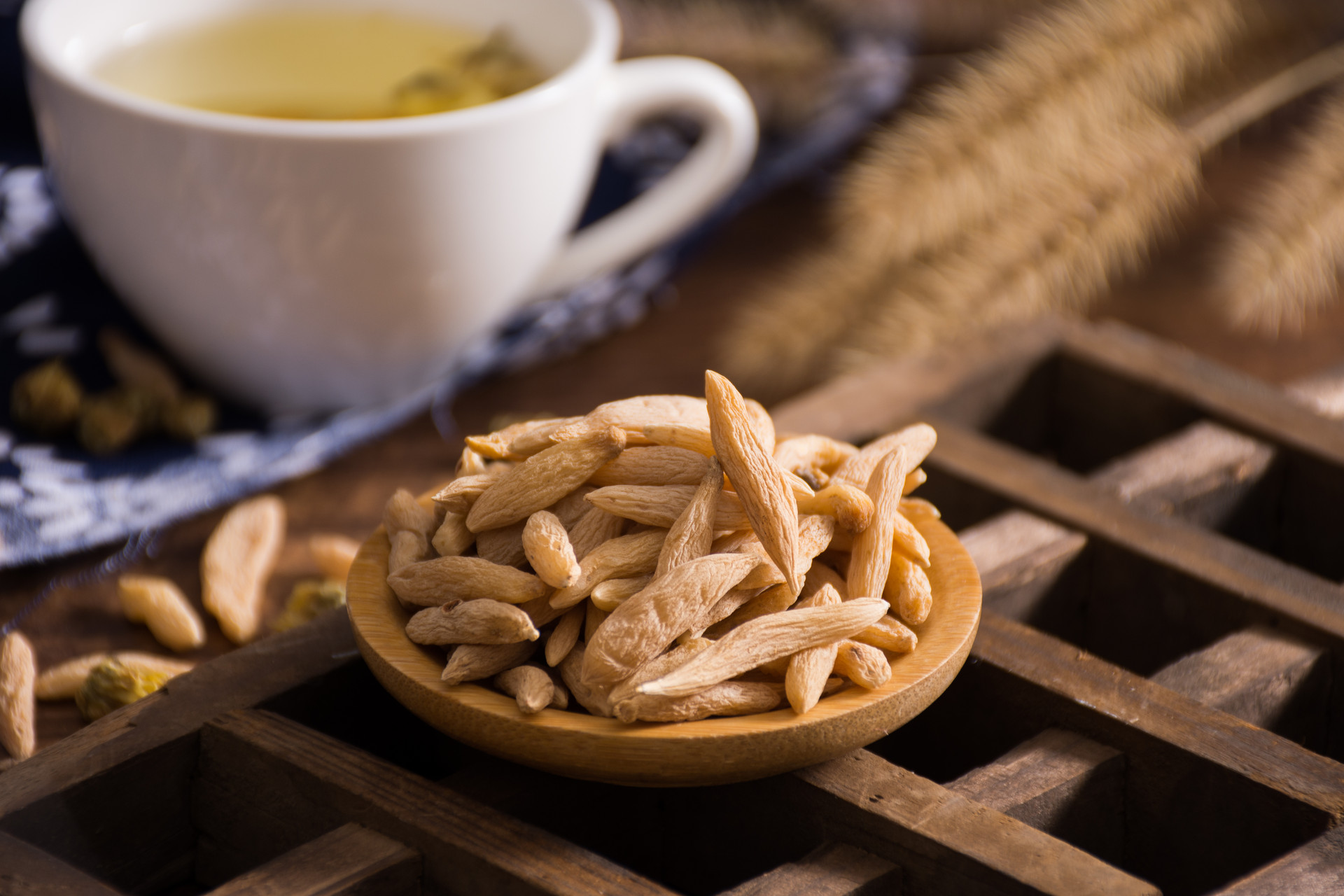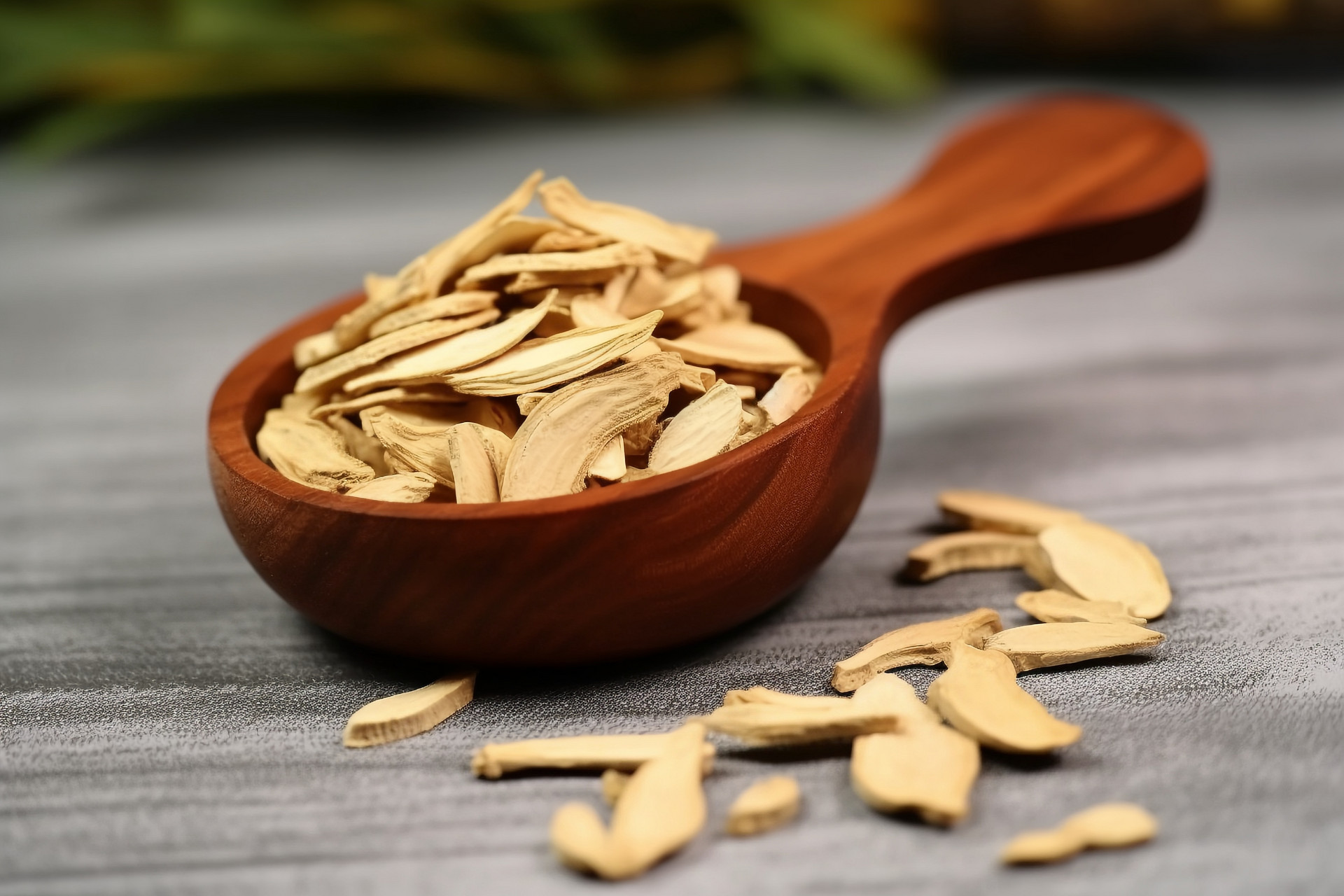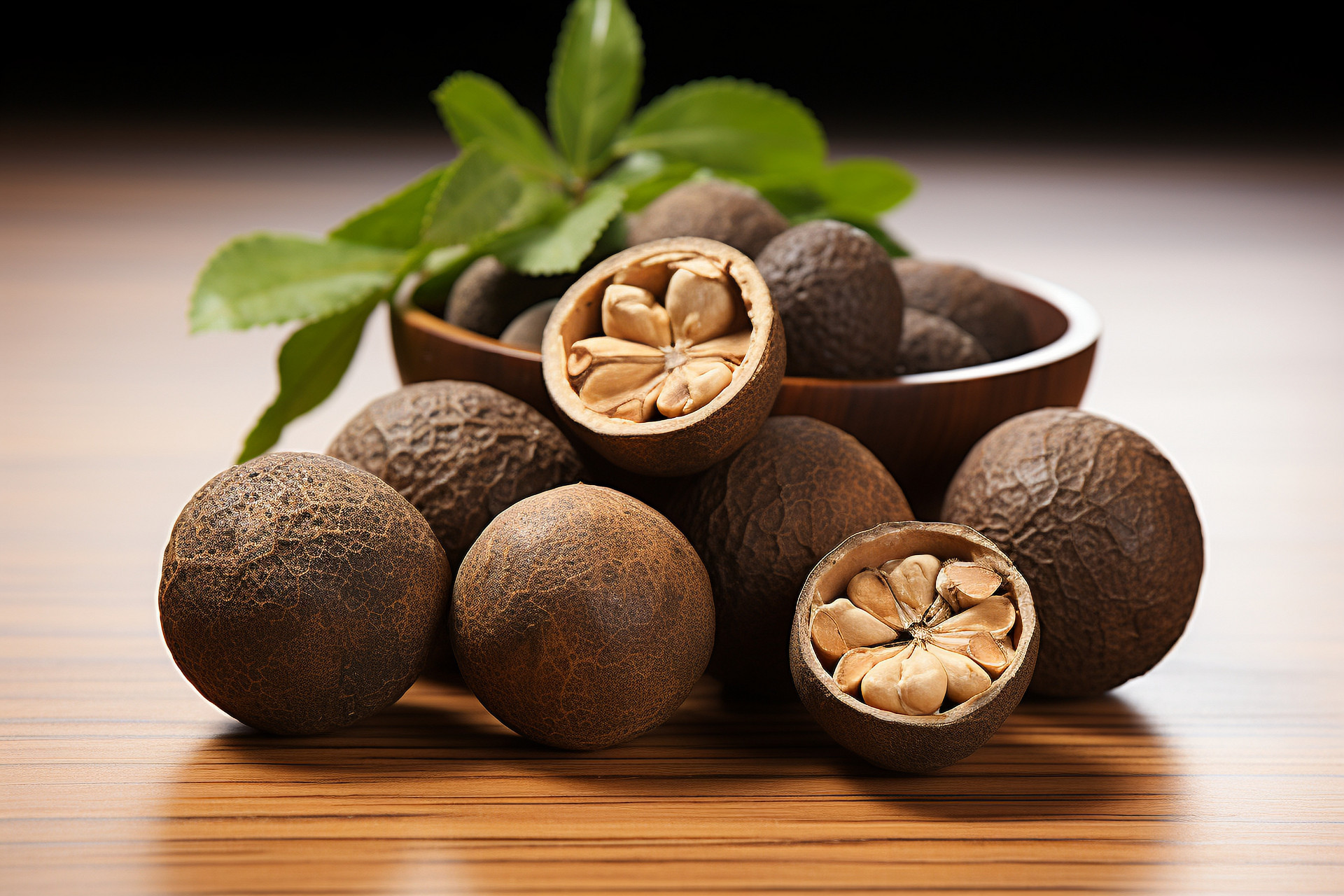Ume, also known as plum fruit or smoked plum, is the dried immature fruit of the plum plant, a member of the Rosaceae family. Ume has a warm nature and a sour taste. It enters the liver, spleen, lungs, and large intestine meridians and has the effects of nourishing the lungs, astringing the intestines, generating body fluids, and expelling intestinal parasites. It is used to treat symptoms such as chronic cough due to lung deficiency, chronic diarrhea, dysentery, bloody stools, low-grade fever, thirst, vomiting due to intestinal parasites, abdominal pain, psoriasis, and skin tags. It is important to note that there are imitation products made from the fruits of the same family as ume, such as the fruit of the apricot plant. Care should be taken to distinguish them when using.
Authentic Ume
The dried fruit is flat and round or irregularly spherical, with a diameter of 1.5 to 3 centimeters. The surface is dark black or dark brown, wrinkled, uneven, and some may have broken skin with the pit exposed. There is a noticeable depression at the end of the fruit where the stem has fallen off. The flesh is soft, and the pit is hard and brownish-yellow, with numerous depressions and a reticulated texture on the surface. It contains one pale yellow seed, oval in shape, resembling an almond. It has a distinctive aroma and an extremely sour taste.
Imitation Apricot
The dried fruit is round or flat round in shape, with a gray-brown, dark brown, or black surface, shriveled and uneven, and may have a hairy appearance. The flesh is thin and hard, tightly adhering to the pit. The pit is flat and round, with a relatively smooth surface and grooved edges. It is hard and contains one seed, which is flattened and heart-shaped, yellow-brown or dark brown. It has a mild aroma and a sour and astringent taste, far less sour than authentic ume.
Modern pharmacological studies have shown that the decoction of authentic ume has a strong antibacterial effect. It inhibits Bacillus anthracis, diphtheria and diphtheria-like bacteria, various Staphylococcus strains, Bacillus subtilis, and Streptococcus pneumoniae. It also has inhibitory effects on pathogenic fungi such as Trichophyton mentagrophytes and Microsporum canis. However, imitation apricot, although belonging to the same plant family, does not possess the same medicinal properties as authentic ume and should not be used as a substitute.
In addition, there are also inferior quality ume on the market. Some of these ume have not been properly roasted or the roasting process is not sufficient, resulting in the pit and fruit not being black but rather reddish-brown. Some have thin flesh and weak sour taste. These inferior quality ume do not meet the medicinal standards and using them may affect the therapeutic effect, so they should be carefully distinguished.











